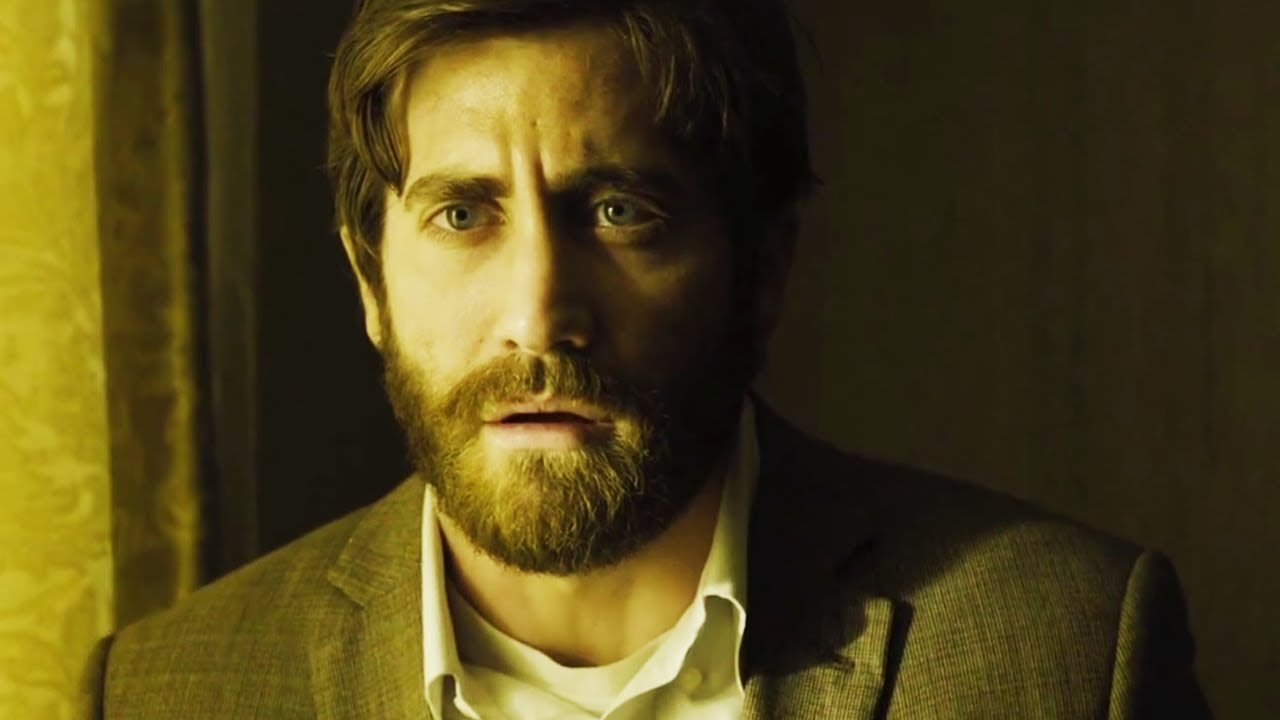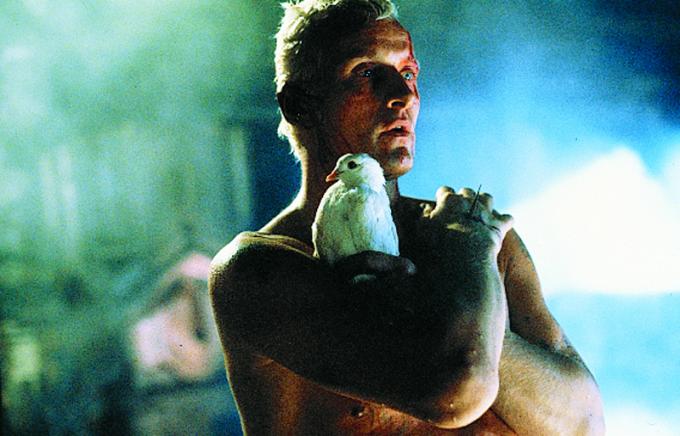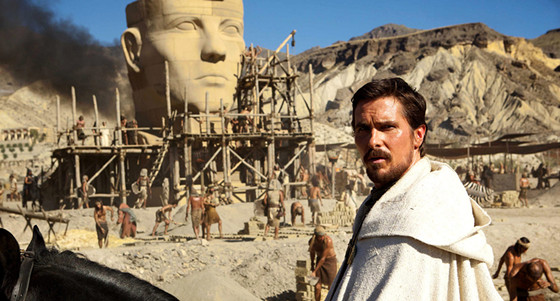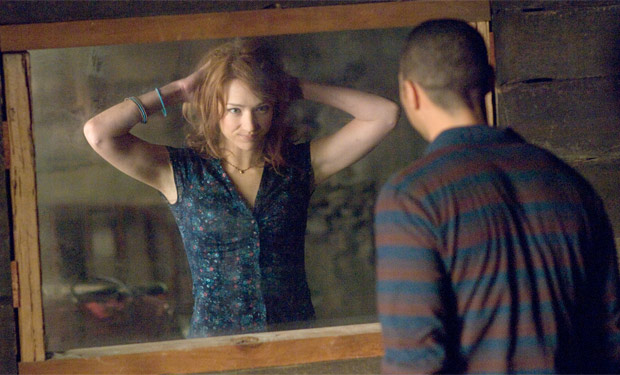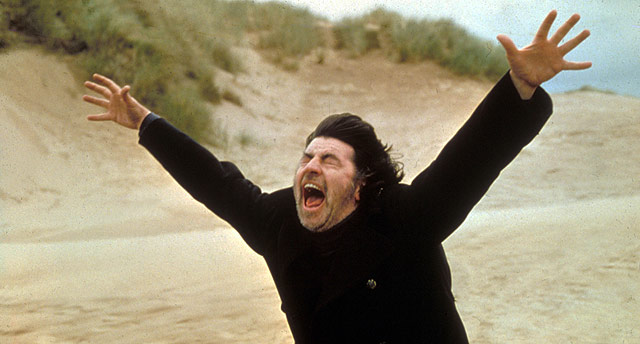What I like about seemingly straightforward movies is that only very few people get them. In other words, only a handful of people suspect there is something to get. So, that gives you a lot of opportunities to have stimulating conversations when all the other topics have dried out.
On the other hand, the meaning you have deciphered is not necessarily the one meant by the director and it doesn’t have to be. The point is strengthening your ability to deconstruct and reconstruct puzzles which will eventually help you think more carefully. Finding the ‘real’ meaning of a work of art is a completely different matter.
We may never find out what was intended. And sometimes, it is not even important to uncover it. Because, even the director himself/herself may not know what he/she is talking about. You become aware of this condition when the director says that he/she enjoys alternate explanations of his/her work.
1. 9 ½ Weeks (1986) – Adrian Lyne
What Was Wrong With That Fish?
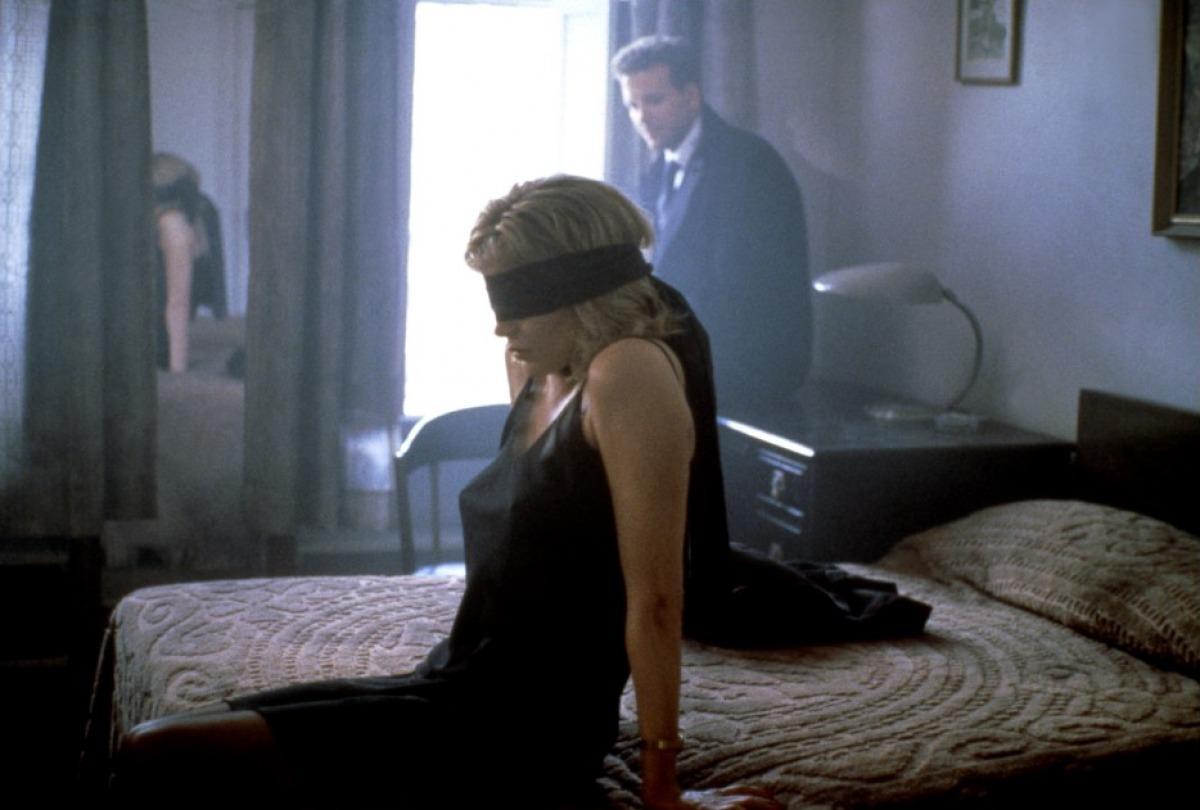
After almost two thirds of the movie, Elizabeth visits a painter (Farnsworth) when the art gallery she’s working for becomes interested in selling his pictures. In the beginning of the movie, we see a seemingly wealthy man and his dog thoughtfully viewing one of his paintings. The man asks whether the figure in the picture is dead. Elizabeth answers that she hopes him to be asleep.
When Elizabeth visits the painter, she finds him nearby his house fishing. He is sitting and looking at the fish he caught thoughtfully and saying: “I remember to eat when I’m hungry… and I remember to sleep when I’m tried.” When Elizabeth talks about how she likes his work and his ability to capture the moment. He says: “I don’t know what it is. It’s the moment? A thing is so familiar… It is strange.”
Later, in a party where Farnsworth himself is the main attraction, Elizabeth sees that life is viewed by most as something to be enjoyed while being extinguished, something without any innate value.
A party without a point… In the middle of the maddening crowd Farnsworth stands alone, confused and looking for a meaning. In this way of looking at things, life is meaningful only when the big fish devours the smaller. We see a fish similar to the one Farnsworth caught being stripped to the bone and readied for trash.
When one’s senses are stimulated, one also acknowledges that he/she is alive. Therefore, to make sure that you are alive, you have to continue to experience such highs. Some rely on drugs for that purpose. In this movie our instrument is sex. Further down the road, when sex is no longer enough, John desperately tries to benefit from creating power relationships to amplify the sensations that may make him feel alive.
Shocked by the implications of her discovery, Elizabeth throws up in the party and soon after, leaves John. She makes a deliberate choice between life and a simulation of life. As if, she says what John Berry once said: “Being alive is being high” and you don’t need sensation amplifiers.
2. Blade Runner (1982) – Ridley Scott
Why Did Batty Save Deckard?
I was watching an interview of Ridley Scott and the host of the show asked Scott why Batty saved Deckard. The question arose from the fact that at that part of the movie Batty was desperately trying to kill Deckard.
Furthermore, Batty was designed to kill. He was a soldier replicant (an artificially created being). There were other types of replicants as well, like the hooker replicant Pris. Scott looked at the face of the host thoughtfully and said that it did not mean anything, that he could have chosen the reverse course of action as easily.
Well, I just don’t buy that. Anyone interested in deciphering hard texts knows that the book you are trying to understand protects itself from those unworthy of its hidden meaning by having a superficial meaning on the outer layer.
Only those who spot the absurdities therein may gain access to a deeper level of understanding. That’s exactly what we are facing here. I mean, can you imagine that Ridley Scott, of all people, was just fooling around? A director who is famous for having complete control not having it when the scene in question required it the most?
To be able to understand how delicate that short scene when Batty rescued Deckard and died in peace after reciting a poem was, we have to consult another great work: Martin Heidegger’s masterpiece Being and Time (1927). Take a long breath and open page 309.
There it says something like this: “Being is the ability to project oneself into any event you are concerned about at the time. When you are dying, on the other hand, you cannot project yourself. Your being is no longer a possible connection with your future. Because you don’t have a future. Therefore, for the first time in your life, you get to see other people as if you are seeing yourself. You see their possible connections with the future and you come to realize that it’s your future too. That we are in this together.”
3. Exodus: Gods and Kings (2014) – Ridley Scott
What Is The Meaning Of Total Darkness?
As Ridley Scott promised, everything had a scientific explanation and the whole thing was quite sophisticated except for one scene. I enjoy instant interpretation of a movie as much as Frank Zappa enjoys his instant compositions with the guitar. So you can imagine how much I was pissed about that scene. Because it didn’t make any sense.
Then, after watching the movie two more times, it hit me. The easiest thing for a director is to have us watch a scene and under its influence display any relevant emotion like the laugh tracks incorporated into the sitcoms. The hardest thing is on the other hand, having us feel like fools, intentionally create unhappy customers.
Don’t you think so? So many movies are designed to make us feel like other people, cooler, smarter or braver people. As Louis C.K. points out, just watching or thinking about them makes us feel more beautiful, smarter and braver. So, obviously the harder thing to do is to have the guts to show us what we really are, because we no longer have the ability to understand the difference between the action and the thought.
We watch a movie about primitive people. If you value the religious significance of these events, then you will feel that the movie was cold and it didn’t do justice to Moses’ greatness. If you are more interested in a historical interpretation, you’ll be trying to understand what led Moses to become a leader and the true nature of the conflict between him and Rameses.
Keeping these in mind, I put on my glasses and tried to enjoy the ride. As the movie progressed, it felt like a documentary where you could always make sense of what was going on at the time. Combine this with gorgeous camera work and music, you’d feel like an outsider. It was so easy to put some distance between the movie and yourself.
Usually this is a very bad thing when it comes to directing movies. On the other hand, if it’s intentional, you’ll have to deal with a challenging puzzle. When there is a big distance between the viewer and the movie, the movie seems more trivial and you would assume that what’s being told has nothing to do with you regardless of your religious beliefs. You are too smart for that kind of stuff.
Then comes the blackout scene where the children who are not Jews are killed one after another by an unexplainable phenomena. I call it the blackout scene, because that’s what it is. Darkness (which is darker than the night) descends upon the city and does the killing.
There are no clues there. There isn’t an engineer trying to explain it for you. You cannot explain it yourself. Therefore you consider it an ‘act of God’ even if you are not into that type of thing. Still, one cannot comprehend why Scott, being an atheist, put it there or put it like this. Didn’t he tell us that this movie would be different and it would be all about science?
After the movie is over, while you are on your way home, if you kept on thinking about it, suddenly you realized what it was all about, didn’t you? Despite our more fashionable outfits and cooler gadgets, we are no different from these primitive people! Indeed, regardless of the time period we live in, we are so much alike.
We are born into oblivion and will disappear into oblivion. When facing unknown and dangerous phenomena people tend to display very similar reactions. I’m not talking about specific gestures here. What I’m talking about is the essence of those moments. Think about the times when you were really scared and you’ll get my meaning.
That was what that blackout scene was about. As if Scott looked at us, laughed and said: “It doesn’t matter who you are, where or when you live, the things you don’t know will always be greater than the things you know and the way you react to the things you don’t know will show who you really are.”
4. The Cabin in the Woods (2012) – Drew Goddard
Why Should We Let It All Fall Down?
It started like any other meaningless Hollywood flick. Then, it turned into something else. Two alternate worlds coexisting side by side and the hidden one (with the hidden presuppositions, obviously) trying to maintain itself with the help of the other world’s inhabitants! Wow! Almost too deep for Hollywood.
The end was nothing short of spectacular too. An authority figure from the hidden world tries to reason with the inhabitants of the other world, Dana and Marty, that to make the world go round, they have to make a sacrifice. Dana, representing the virgin, must get rid of Marty, representing the fool, by killing him as an offering to the Gods. If she didn’t do that, everything they knew and liked would vanish. In other words, as Mr. Spock puts it: “The needs of the many outweigh the needs of the few.”
Being reasonable, Dana almost kills Marty. However, when Marty saves her after a werewolf attack despite the previous confrontation, she loses her nerve. While they were waiting there for the world to end, Marty offers Dana a joint and says that he was sorry to let her attacked by a werewolf and then, ended the world.
However, you see that the critical question is there, can’t you? To continue to live as a puppet or to reject it… That’s the question. Accepting whatever the current circumstances put on our shoulders, not seeing any problem with that, and furthermore, thinking it to be the norm…
Surprisingly, our heroes decide to end the world and refuse to live like puppets. Dana says: “Nahh, you were right. Humanity… It’s time to give some else a chance.” Putting a critical question in the midst of triviality is the highest form of irony, if you ask me. I guess, a CEO in Hollywood did not read the script that far.
5. The Shout (1978) – Jerzy Skolimowski
Can Advanced Techniques Of Seeing Make You Blind?
We see Anthony experimenting with all sorts of sounds. He seems to be on the cutting edge of avant-garde music. We may interpret this as him having a keen eye which would be wrong. Having mastered techniques of better understanding, he cannot only not understand his unexpected visitor Crossley, but also he feels threatened by him.
He should have felt lucky though, because right in the beginning, Crossley explains his point to him saying: “You haven’t the imagination to understand anything beyond your own experience.” We may interpret this as methods being useless in the hands of unenlightened people.
When we take a closer look at Anthony, we see that he is an ordinary man who is after ordinary, selfish interests, nothing more. As usual, it is the woman, his wife who feels what’s genuine and has an uncontrollable desire towards it. She is almost possessed by this unexpected and alarmingly strange visitor.
We have come to that eternal question once again, haven’t we? Sometimes, the more you analyze something, the less understandable it gets. So, let’s have a simplistic approach and consider Anthony’s compositions. The essence of Anthony’s compositions should have been him being home, not looking for it. When he goes to church he just performs a regular duty. A communal existence is unintelligible to him. His affair with one of the villagers doesn’t mean anything beyond casual sex.
Something that does not mean anything to you cannot enrich your life and in return, it may turn your life into a never-ending struggle while you create a conglomerate of meaningless moments, hours, days and years. That fake reality is so fragile, on the other hand, that you must maintain it by providing the necessary building blocks continuously. You must add another item to the list, and then another, until one day you yourself expire.
When faced with the real thing, however unimaginable like the shout of a seemingly crazy man, you will inevitably fall victim to it. Nobody said this better than Ian Anderson of the Jethro Tull: “So you ride yourselves over the fields and you make all your animal deals and your wise men don’t know how it feels to be thick as a brick. And the sand-castle virtues are all swept away in the tidal destruction the moral melee.” (Thick As A Brick, 1972).
